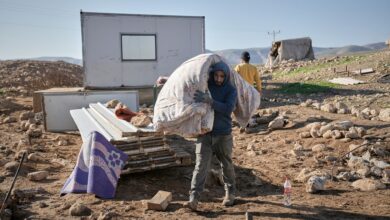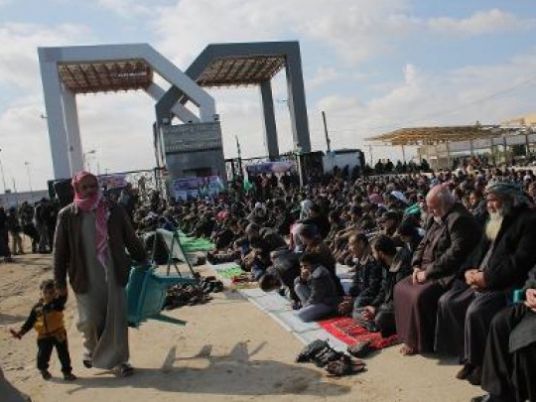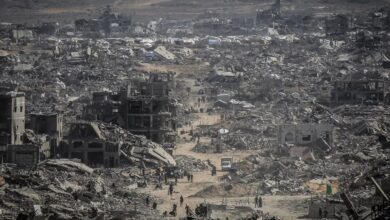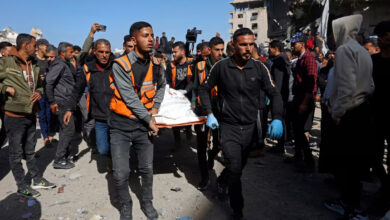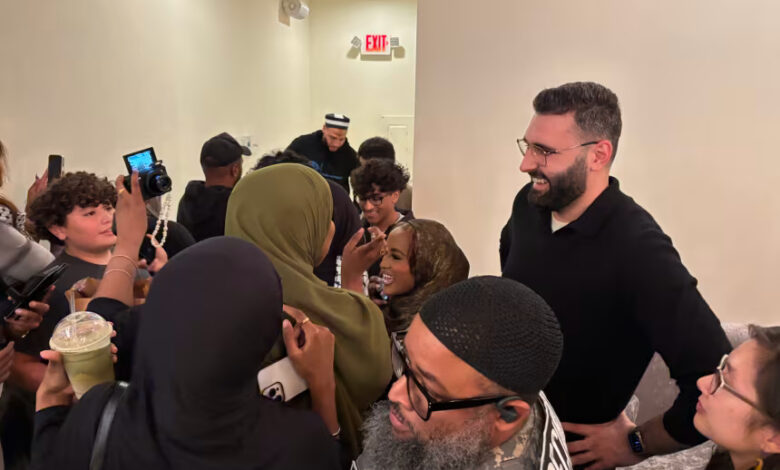
Motaz Azaiza has witnessed the horrors of war. Now he’s trying to restore his faith in humanity. For 107 days, he was a photojournalist on the front lines of a warzone in his own familiar neighborhoods, documenting the carnage wrought by relentless Israeli airstrikes in such raw and unedited detail that it was impossible to ignore.
Since mainstream news organizations were unable to film inside Gaza, Azaiza, like other Palestinian journalists in the strip, recorded the early days of the conflict.
Over the past two years, more than 68,000 people have been killed, according to local health officials in the enclave, and with over 90% of the residential buildings destroyed, most of the population has been internally displaced.
Azaiza knows that he’s lucky to be alive. “My life is worth more now than if I was dead,” he told CNN earlier this month. “A lot of Gazans got killed. Nobody mentions their names.”
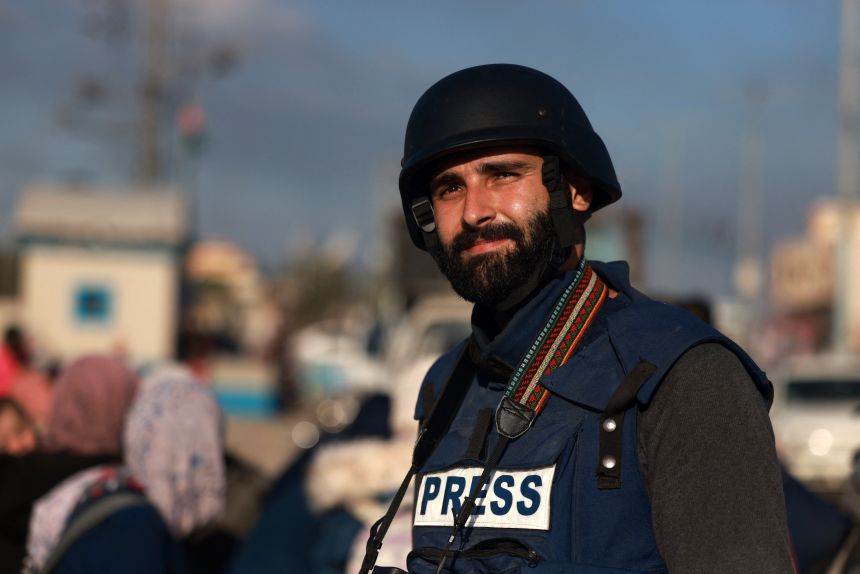
It’s been 21 months since Azaiza escaped with his immediate family to Qatar; he’s now living in New York. He’s been working with aid groups to help the people of Gaza, and says he has raised $60 million and saved numerous lives. He recently launched a foundation to continue fundraising for Palestinians in Gaza, saying it will help to provide food and pastries, tanker trucks of clean water, blankets and shelter. “A candle in the darkness” is how he describes the Motaz Foundation to his Instagram followers, encouraging those in need to personally reach out for help.
When asked at a recent event at the Muslim Wellness Center in Roswell, Georgia, why he named it after himself, he said that he simply couldn’t think of anything else to call it. But he’s proud of the work and it’s giving him purpose as he works through the traumatic upheaval of his life.
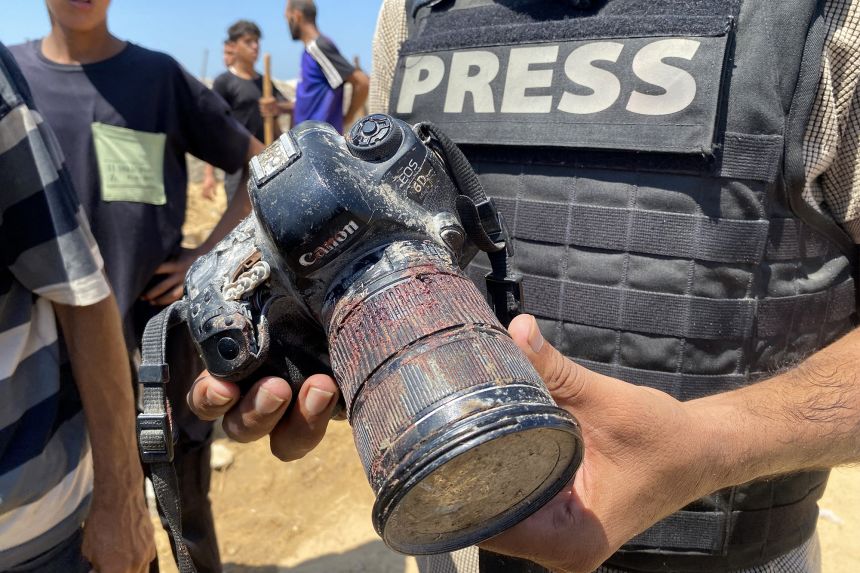
“Maybe this makes me forget the mental suffering that I’m in,” he pondered, leaning on the back of a pickup truck behind a Yemeni coffee shop which had just hosted a fundraising event for the foundation. “The moment I wire funds to people and get aid, support, and food, I feel high!” As he navigates a maelstrom of emotions, both his torment and his exhilaration are evident. “I’ve never been a useless person,” he said, “I’m always trying to be useful at every step.”
More than 240 journalists have been killed in Gaza since the October 7, 2023 Hamas-led terror attack, in which more than 1,200 were killed and about 250 taken hostage, prompting Israel’s fierce military response. Israel denies targeting reporters, but Gaza has become the deadliest conflict zone ever for them, according to the Committee to Protect Journalists.
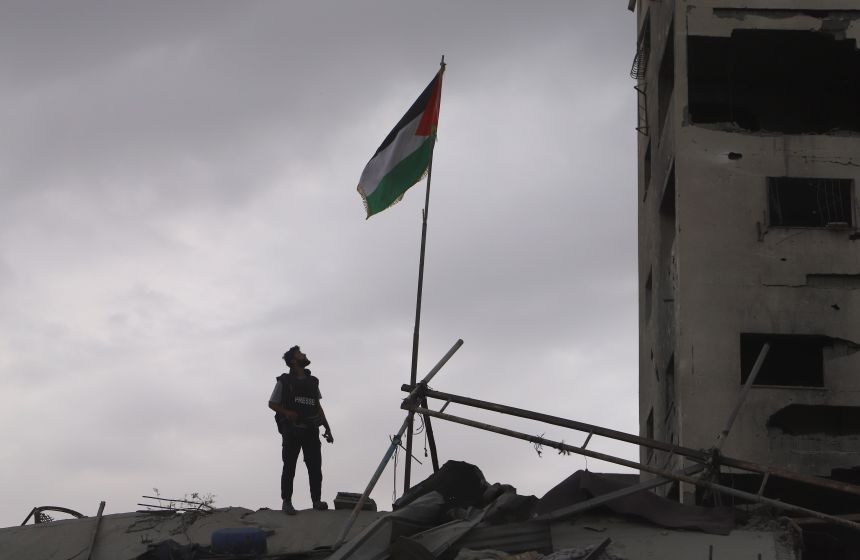
Azaiza says he was receiving death threats via anonymous phone calls shortly before he left the strip and he knows that his story could easily have ended there. Does coming so close to death make him feel more alive? It’s complicated. “Yeah,” he responds, “because you don’t have anything to lose.”
He says he has lost countless friends in Gaza. But he also feels as though he is dead inside. “My soul is turned off,” he said. Sometimes he felt lucky to survive – and luckier to escape – wrestling even now with survivors’ guilt, as do others who managed to flee the war or have witnessed it unfold from afar. “This is the feeling that people want me to feel,” he explains. “Or Israel wants me to feel, because if they defeat you inside then they don’t need to do anything else. I have it, but I’m trying not to allow it to control (me).”
Azaiza says he always wanted to be a photographer, but if violence hadn’t beaten a path to his door, then he would never have sought it out. He preferred taking artistic shots of bustling marketplaces or kids playing on the beach and resented that the outside world only seemed to be interested in paying for his work when he and Gaza’s other photojournalists competed for images depicting the most visceral scenes of the aftermath of an airstrike. His documentation of Israel’s response to the October 7 attack delivered him a massive social media following and professional success – his photo from October 31, 2023 of a woman trapped in a pancaked apartment building in Nuseirat refugee camp in central Gaza was recognized as one of Time magazine’s top 10 photographs of the year. But unlike his industry peers in other countries, he couldn’t celebrate the achievement because only his community’s extreme suffering had given him the opportunity to succeed.
Dreams of war
Azaiza says he feels that, somehow, fate chose him to be a bridge between the carnage in Gaza and the world outside, and he confides now that he foresaw his future many times before the war. Azaiza would often dream of running through the streets in a press vest, a building next to him would blow up and he would bang his head on the ground before waking up, he said. The dream made no sense to him. “And then I found myself in the vest,” he said, “in the helmet, in the car (passing) the building that I saw in my dream. It was on fire. A lot of things that I imagined happened.”
A young lady stood up to address him during one of the fundraising events in Georgia. “Thank you for opening our eyes,” she said, her voice cracking with emotion as she wiped tears from her cheeks. “Thank you for being alive, for being here. I’m so grateful for you.” Another man stood and hailed him a hero. “I’m not a hero,” Azaiza deflected, “I’m not Superman. I still have to wait in line for the toilet.”

Azaiza never wanted to be famous and, although he has more than 15 million followers on Instagram, he says that he’s the same man he was on October 6, 2023, just with more pressure on his shoulders. He’s learned the hard way that it’s impossible to stay out of politics when it comes to Gaza, where so many competing factions have their own agendas to promote; some of the people who used to applaud him now envy him and troll him with abuse on social media instead, he said. The hateful words are in some ways worse than the bullets, he said, because at least one knows how a bullet will hurt.
“But this,” he paused for emphasis, “eats you from the inside, makes your heart tight, makes your stomach not able to eat, makes you overthink. And it hurts others around you, hurts your mom. The keyboard warriors, this is how Israel (can) win. They don’t need to divide us, we’re already divided.”
He’s grateful for the ceasefire, and an end to the killing, but he doesn’t think it’s fair to the Palestinians. “I just wanted the genocide to stop,” he explained. “We’ve been calling for it to stop since October 9. Give them (Israel) the hostages. But nobody listened to us until we lost it all.
“Now it sounds like peace that is giving Israel more peace and more power, they got what they wanted after the massacre, the whole strip. Maybe it’s going to last, because, like, there’s nothing left.”
An independent UN inquiry concluded in September that Israel had committed genocide against Palestinians in Gaza, echoing the findings of other genocide experts and human rights groups, all of which Israel has rejected.
For now, Azaiza is focused on his humanitarian work but living in a kind of limbo. He dreams of returning to Gaza to build a home by the sea but wonders what kind of life he would be returning to. He says he’d like to be Gaza’s Minister of Youth one day but knows that many politicians become corrupt; he’d love to start a family too.
Most of all, he dreams of working with his camera in a simpler life. “You know Tarzan?” he asked rhetorically. “I want to be Tarzan with a camera. I wish to go to Tanzania with my camera, capture lions and animals. I don’t want to capture any human anymore, humans bring problems, bring pain, and bring troubles. No humans anymore, only animals, that’s it.”

